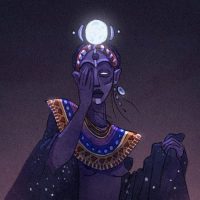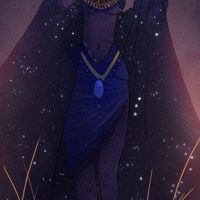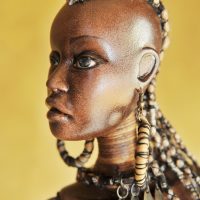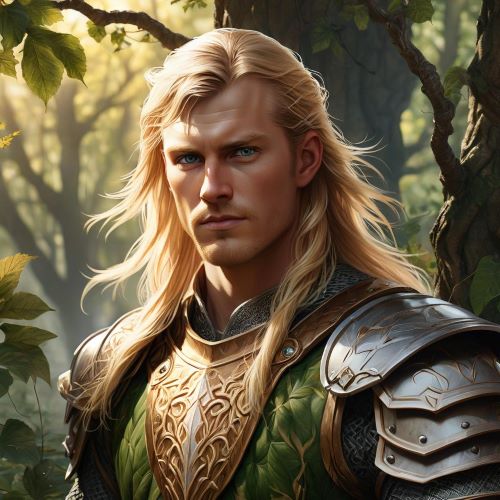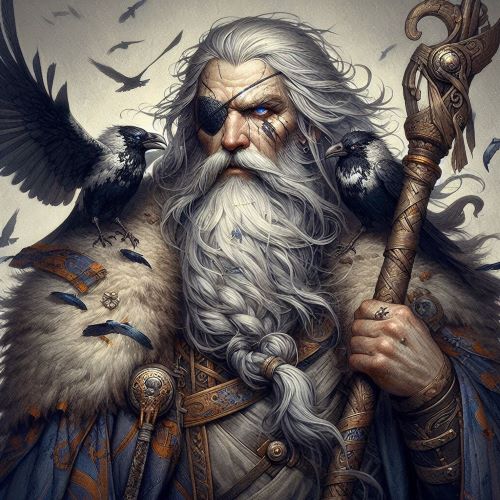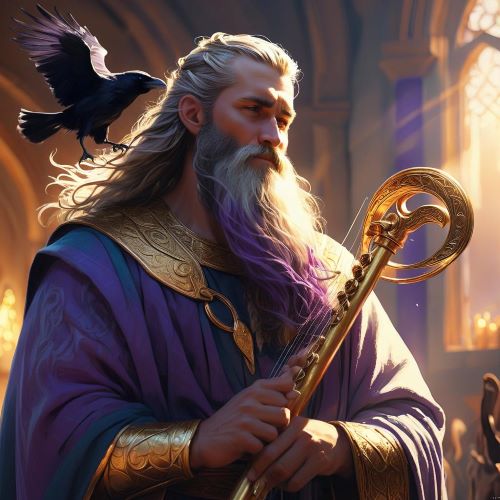Frigg : The Mother Goddess
Listen
At a glance
| Description | |
|---|---|
| Origin | Norse Mythology |
| Classification | Gods |
| Family Members | Odin (Husband), Baldur (Son) |
| Region | Iceland, Denmark, Finland |
| Associated With | Wisdom, Maternal affection |
Frigg
Introduction
Frigg, a prominent goddess in Norse mythology, holds a central role among the Aesir, the chief assembly of deities. Revered for her wisdom, maternal affection, and devotion to marital bonds, she stands as a pillar of the divine pantheon. As the consort of Odin, the paramount deity, Frigg occupies a position of considerable influence within the celestial hierarchy. Her portrayal as the queen of the Aesir underscores her pervasive impact on Norse culture, symbolizing maternal love, wisdom, and sovereignty. Known by various epithets, Frigg epitomizes the virtues of love and wisdom, reigning supreme as the foremost goddess in Norse mythology. As the spouse of Odin, the preeminent god, and the mother of Baldr, the cherished deity of light, Frigg embodies a richly nuanced character, reflecting the complexities of divine existence.
Physical Traits
In the ancient texts, specific physical attributes of Frigg are notably absent, leaving her appearance open to interpretation. Modern depictions often portray her as a vision of beauty, adorned in regal attire that befits her role as the queen of the Aesir. Radiant and graceful, she is often depicted wearing a crown or headdress, symbolizing her esteemed status among the gods. While Norse art frequently portrays her in luxurious robes, evoking an aura of authority and elegance, the finer details of her appearance remain elusive in the original texts. Unlike some Norse deities who are vividly described, Frigg’s physical form remains shrouded in mystery, allowing for diverse artistic interpretations. Some scholars suggest she may have been represented wearing a flowing blue cloak, symbolizing the boundless expanse and ever-changing nature of the sky.
Family
Frigg’s familial connections are deeply woven into the fabric of Norse mythology. As the wife of Odin, the supreme ruler of the gods, she occupies a central role in the divine hierarchy. Together, they nurture a family that includes Baldr, their cherished son associated with light and purity. Frigg’s unwavering devotion to her family, particularly to Baldr, is a defining aspect of her character.
Her lineage is notable yet shrouded in mystery, with her father, Fjorgynn, remaining elusive in Norse lore. However, her marriage to Odin solidifies her position as the queen of Asgard, the celestial realm. From this union springs Baldr, revered for his beauty and radiance, embodying his mother’s virtues. Frigg is also recognized as the mother of Hodr, the blind god whose unwitting actions contribute to the events of Ragnarok, the apocalyptic battle of Norse mythology. Additionally, some accounts mention Hermod, the swift messenger god, among Frigg’s progeny.
In their divine partnership, Frigg and Odin oversee the cosmic order from their seat in Asgard. Their familial bonds extend beyond Baldr and Hodr, encompassing other notable figures such as Thor, the mighty thunder god. The intricate dynamics of Frigg’s maternal relationships add depth to her narrative, particularly in the tragedy of Baldr’s fate, where her love and loss intertwine with the larger themes of Norse mythology.
Other names
Frigg’s impact transcends the boundaries of Norse mythology, leaving an indelible mark on various Germanic cultures. Derived from the Old Norse term “fríja,” meaning “to love,” her name resonates across linguistic and cultural landscapes. In Old High German, she is revered as Frīja, while the Langobards honor her as Frēa. Among the Anglo-Saxons, she is known as Frīg, while the Old Frisians worship her as Frīa. This linguistic convergence underscores the significance of love, a central theme in Frigg’s mythology. Notably, the English word “Friday” traces its origins to “Frigg’s Day,” further cementing her enduring influence.
Across various Germanic languages, Frigg is recognized by different names. In Old High German, she is addressed as Frīja, while in Langobardic, she is known as Frēa. Old English refers to her as Frīg, Old Frisian as Frīa, and Old Saxon as Frī. These diverse appellations all stem from the Proto-Germanic feminine noun *Frijjō, emphasizing the universality of her reverence and the enduring legacy of her name across cultural and linguistic boundaries.
Powers and Abilities
Frigg’s power lies not in strength but in her unparalleled wisdom and foresight. Endowed with the gift of prophecy, she possesses the keen insight to unravel the threads of fate. Unlike Odin, who pursues knowledge through sacrifice and trials, Frigg’s wisdom appears inherent to her nature. She governs over the domains of domesticity, fertility, and love, serving as a guardian of women and families. Her association with weaving and spinning symbolizes her connection to the intricate fabric of destiny.
Despite her omniscience, Frigg is powerless to alter destiny’s course. This tragic truth is evident in her desperate efforts to shield her beloved son Baldr from his foretold fate. Traveling across realms, she secures oaths from all beings to spare Baldr harm, yet overlooks the seemingly innocuous mistletoe, which ultimately becomes his undoing. Frigg’s wisdom and foresight are intrinsic to her character. She possesses the rare ability to glimpse into the future, a knowledge she typically keeps guarded. Often depicted as a skilled weaver, she spins the threads of fate with meticulous precision, shaping the destinies of individuals and civilizations alike.
Additionally, Frigg is revered as a patroness of marriage and motherhood, bestowing blessings upon couples and safeguarding expectant mothers and their offspring. Her maternal instincts drive her unwavering determination to shield her loved ones from harm, epitomizing her boundless love and protective instincts.
Modern Day Influence
Frigg’s impact transcends the boundaries of ancient mythology, leaving an indelible mark on modern society. Embraced by feminist movements as a symbol of female strength and wisdom, she resonates particularly in wedding ceremonies, often celebrated on Fridays in homage to her. Artists find ongoing inspiration in her enigmatic persona, depicting her across various mediums, from traditional paintings to contemporary video games.
Moreover, Frigg’s influence extends beyond mere cultural homage. The English term “Friday” directly acknowledges her, preserving her legacy in the lexicon of everyday life. Even after the Christianization of Scandinavia, references to Frigg persisted in folklore, indicating her enduring relevance in the collective consciousness.
In contemporary popular culture, Frigg’s presence remains palpable, inspiring creators across diverse artistic landscapes. Writers, filmmakers, and musicians continue to draw upon her themes of motherhood, wisdom, and divine authority, weaving her essence into literature, music, and visual media. Through these myriad expressions, Frigg’s timeless significance endures, reaffirming her status as a captivating figure whose legacy transcends the boundaries of time and myth.
Related Images
Frequently Asked Questions
What is lorem Ipsum?
I am text block. Click edit button to change this text. Lorem ipsum dolor sit amet, consectetur adipiscing elit. Ut elit tellus, luctus nec ullamcorper mattis, pulvinar dapibus leo.
What is lorem Ipsum?
I am text block. Click edit button to change this text. Lorem ipsum dolor sit amet, consectetur adipiscing elit. Ut elit tellus, luctus nec ullamcorper mattis, pulvinar dapibus leo.
What is lorem Ipsum?
I am text block. Click edit button to change this text. Lorem ipsum dolor sit amet, consectetur adipiscing elit. Ut elit tellus, luctus nec ullamcorper mattis, pulvinar dapibus leo.
What is lorem Ipsum?
I am text block. Click edit button to change this text. Lorem ipsum dolor sit amet, consectetur adipiscing elit. Ut elit tellus, luctus nec ullamcorper mattis, pulvinar dapibus leo.
What is lorem Ipsum?
I am text block. Click edit button to change this text. Lorem ipsum dolor sit amet, consectetur adipiscing elit. Ut elit tellus, luctus nec ullamcorper mattis, pulvinar dapibus leo.

